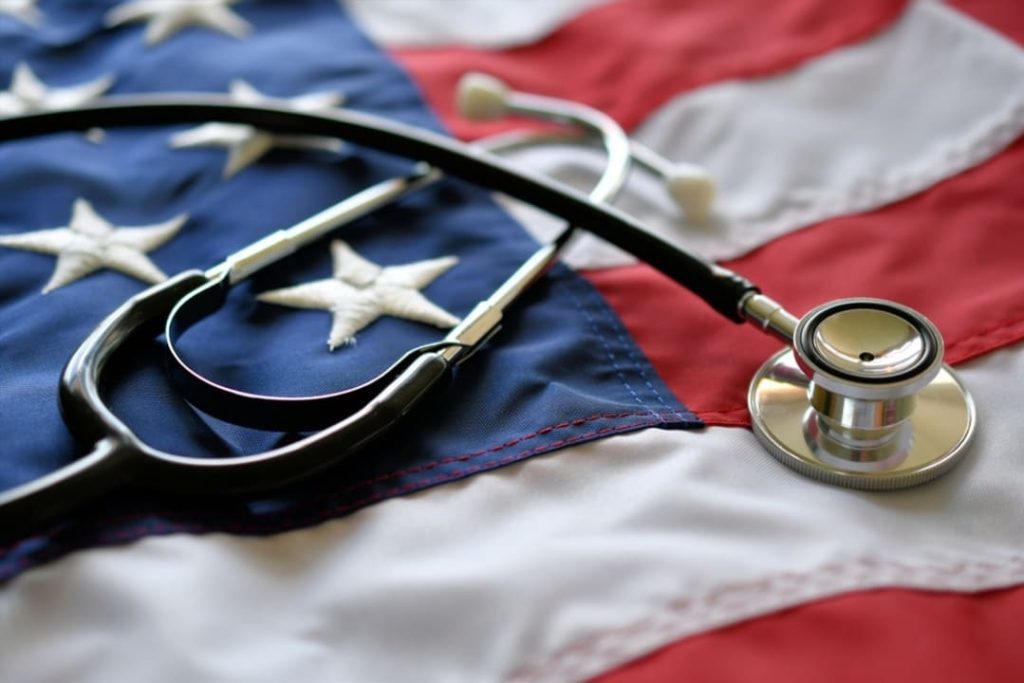Looking for Expert-Level VA Claim Answers?📱Call Us Now! 737-295-2226
Picture this. You’re driving along the highway coming back from a serene vacation with your family in the car, when someone attempts to enter your lane, causing an accident. As a veteran, your fight or flight for the safety and well-being of your family kicks in, but they still require medical attention that may come at a steep price back at the hospital.
Navigating healthcare as a veteran can be overwhelming. After years of dedicated service, the last thing you should have to worry about is how to afford medical care, especially in the circumstances previously mentioned. Yet, many veterans and their families face frustration, financial stress, and difficult decisions when it comes to paying for medical bills or accessing costly treatments.
The transition from military to civilian life is already filled with challenges—adjusting to a new routine, finding employment, and dealing with service-related health issues. The added complexity of figuring out which healthcare benefits to use can feel like an insurmountable hurdle.
If you’re wondering, “Can you have Medicaid, Medicare and VA benefits?”, the answer is yes—but it’s vital to understand how they work together to ensure you receive the care you deserve without added stress.
Table of Contents
Summary of Key Points
- Veterans can be enrolled in VA healthcare, Medicare, and Medicaid at the same time, ensuring broader healthcare coverage and reducing out-of-pocket costs.
- VA healthcare provides care at VA facilities, but it may cover treatment at non-VA hospitals under certain conditions, such as through the Community Care Network or for emergency care, making Medicare a crucial backup for veterans needing flexibility in their healthcare.
- Medicaid can act as secondary insurance, covering expenses not handled by Medicare or VA benefits, such as long-term care and non-VA provider visits.
- VA benefits do not automatically provide free healthcare for life; eligibility is based on service history, disability status, and income.

How Medicare and VA Benefits Work Together
The Department of Veterans Affairs (VA) healthcare system and Medicare for veterans are two separate programs. Veterans who qualify for both need to understand how to utilize them effectively.
What is VA Healthcare?
VA healthcare provides medical services to eligible veterans through VA hospitals and clinics. To qualify, veterans must have served in active duty and received a discharge other than dishonorable. Eligibility is based on factors such as service-connected disabilities, income level, and other considerations.
Veterans enrolled in VA healthcare may receive benefits like primary care, specialist treatment, mental health services, and prescriptions. However, for some veterans, these services alone may not be enough, especially when facing chronic conditions or the need for specialized care.
What is Medicare for Veterans?
For veterans, Medicare serves as a valuable supplement to VA healthcare, expanding their access to healthcare providers and services. While VA benefits offer comprehensive care, they are primarily limited to VA facilities, which may not always be convenient or immediately available.
Having both VA benefits and Medicare provides greater flexibility in seeking care. Veterans can use VA facilities when available, but if they need to see a specialist, access emergency care outside the VA system, or require treatments that the VA does not cover, Medicare provides coverage for those services. This dual coverage can be particularly beneficial for those managing chronic illnesses or requiring specialized medical attention.
Another advantage of enrolling in Medicare is coverage for non-service-connected conditions. While the VA primarily treats service-related issues, Medicare allows veterans to receive care for any health concern, ensuring a more comprehensive safety net. Additionally, Medicare can provide coverage for preventive services, home health care, and medical equipment that may not be fully covered by VA benefits.
Some veterans may hesitate to enroll in Medicare due to concerns about additional costs, but having both options ensures that they are prepared for any healthcare situation. Delaying enrollment in Medicare after becoming eligible at age 65 can lead to late enrollment penalties, so it’s often beneficial for veterans to enroll, even if they primarily rely on VA healthcare. The combination of VA benefits and Medicare provides veterans with more choices, greater flexibility, and peace of mind knowing they have access to care when and where they need it.
How Medicare Works with VA Benefits
- Medicare does not cover care received at VA facilities. Veterans must use VA benefits for VA care and Medicare for non-VA care.
- If a veteran receives Medicare Part A and Part B, they can get care at non-VA hospitals and providers, ensuring they never have to choose between care and affordability.
- Medicare Advantage (Part C) plans may offer additional coverage, including vision, dental, and hearing benefits not provided by VA healthcare, which can make a major difference in quality of life.
- Medicare Part D can help veterans cover prescriptions outside of VA facilities, reducing the financial burden of necessary medications.
Do Veterans Get Free Healthcare for Life?
Many veterans ask, “Do veterans get free healthcare for life?” The answer depends on their eligibility and service history. While some veterans qualify for no-cost VA healthcare, others may have co-pays or need supplemental insurance like Medicare or Medicaid. The reality is that not all veterans receive free healthcare, making it critical to explore every available option.
While the VA provides healthcare for many veterans, eligibility is based on factors such as service-connected disabilities, income levels, and priority group classifications. Some veterans with significant service-related conditions may receive full coverage, while others might have a copay for certain treatments, prescriptions, or specialty care.
This makes it essential for veterans to enroll in Medicare or Medicaid, ensuring that they have comprehensive coverage for all medical needs.
For veterans who do not qualify for free healthcare through the VA, Medicare, Medicaid, and private insurance can help fill the gaps. Some veterans are surprised to learn that even with VA benefits, certain types of care—like emergency services at non-VA hospitals—may not be covered.
In these cases, having additional insurance like Medicare for veterans ensures they won’t be left with unexpected medical bills. Taking advantage of multiple healthcare options can help veterans safeguard their financial and physical well-being.
How Medicaid and VA Benefits Work Together
For veterans struggling with medical costs, Medicaid VA benefits can provide a crucial lifeline. Medicaid can serve as a secondary coverage option, covering services not provided by VA benefits or Medicare.
How Medicaid and VA Benefits Interact
Understanding how Medicaid and VA benefits interact is essential for veterans looking to maximize their healthcare coverage. Here’s how they work together:
- VA healthcare covers VA-authorized services at VA medical facilities or through the VA Community Care Network when eligibility criteria are met.
- Medicaid can act as secondary insurance, covering costs that VA healthcare does not, such as out-of-pocket expenses, long-term care, and non-VA provider visits.
- Medicaid can help pay Medicare premiums, deductibles, and copayments, reducing the financial burden for veterans who are also enrolled in Medicare.
- Some Medicaid programs provide home and community-based services (HCBS), which can be invaluable for veterans needing in-home care, rehabilitation, or specialized treatments not covered by the VA.
- Medicaid eligibility varies by state, so veterans should check their state’s specific guidelines to determine whether they qualify.
- Dual eligibility for VA benefits and Medicaid means veterans can access a broader range of services without worrying about excessive costs or gaps in coverage.
For veterans who require long-term nursing home care, Medicaid often plays a crucial role in covering expenses that VA benefits and Medicare do not. While the VA does offer some long-term care services, space can be limited, and not all veterans qualify. Medicaid can help bridge the gap, ensuring that veterans receive quality, continuous care without facing financial hardship.
To determine Medicaid eligibility, veterans must meet income and asset limits set by their state.
Choosing the Best Healthcare Coverage
Veterans have sacrificed so much for their country, and ensuring they have comprehensive healthcare coverage is essential. No veteran should have to face skyrocketing medical bills or delayed care due to uncertainty about their benefits.
Whether you’re eligible for VA healthcare, Medicare for veterans, or Medicaid VA programs, knowing your options ensures you and your family receive the care you deserve.
(FAQs) Frequently Asked Questions

Can I have Medicare, Medicaid, and VA benefits at the same time?
Yes, veterans can have all three benefits simultaneously. Each program covers different aspects of healthcare—VA benefits provide care at VA facilities, Medicare covers non-VA medical services, and Medicaid can assist with costs like premiums, copays, and long-term care. Using all three programs together can provide comprehensive coverage and reduce out-of-pocket expenses.
Do I need health insurance if I have VA benefits?
It depends on your healthcare needs. While VA benefits provide comprehensive care at VA facilities, they may not cover everything, such as emergency services at non-VA hospitals. Enrolling in Medicare or other insurance options can give you more flexibility and coverage for services the VA does not provide.
Is Tricare Medicare?
No, Tricare is separate from Medicare. Tricare is the healthcare program for active-duty service members, retirees, and their families. However, once a veteran becomes age 65, they may qualify for Tricare for Life, which works alongside Medicare to cover additional healthcare costs.
Can I get Tricare as a disabled veteran?
Disabled veterans do not automatically qualify for Tricare unless they are medically retired from the military or meet specific eligibility criteria. However, they may be eligible for VA healthcare, Medicare, or Medicaid to help cover medical expenses.
Want Expert-Level Support for Your VA Disability Claim? WE GOT YOUR SIX!
How does VA Claims Insider help veterans?
We make the confusing and frustrating VA claim process EASY through our 8-step proprietary system and one-on-one coaching; we’re the VA Claim EXPERTS you can trust, and YOU are never alone in this fight against the VA!
You’ll also receive VA disability expert Brian Reese’s SEM Method Blueprint—a proven formula that has helped over 25,000 veterans win their VA disability claims faster:
Strategy + Education + Medical Evidence = VA Rating and Compensation You Deserve FASTER!
Start today and unlock an exceptional level of service you deserve for serving our country:
- You’ll hear from a VA Claim Expert over email within 15 minutes of signing up today.
- You’ll hear from your Veteran Coach team within 24 hours of all inquiries during normal business days/hours.
- Our terms are clear and simple: If we don’t win, you don’t pay. You have nothing to lose and everything to gain.
Click the red button below to start the process of winning your VA claim right now!
About VA Claims Insider
- VA Claims Insider is the #1 most trusted name in VA disability claims.
- Work directly with a VA claims coach who can educate you to VA claim victory.
- 25,000+ disabled veterans have served in our membership programs since 2016.
- 30% average rating increase for veterans who complete our #1-rated Elite program.
- 4.7/5.0 average rating out of 5,500+ total reviews; over 4,500 5-star reviews.
Author

Dan Pearce
Dan has an expansive library of content that he’s created across industries, serving as a creator for countless articles, podcasts, videos, eBooks, websites, and more. He boasts a passion for storytelling and utilizes a degree in English with a double creative writing emphasis in Fiction and Poetry Writing, in order to embolden his subject matter to unparalleled heights.



